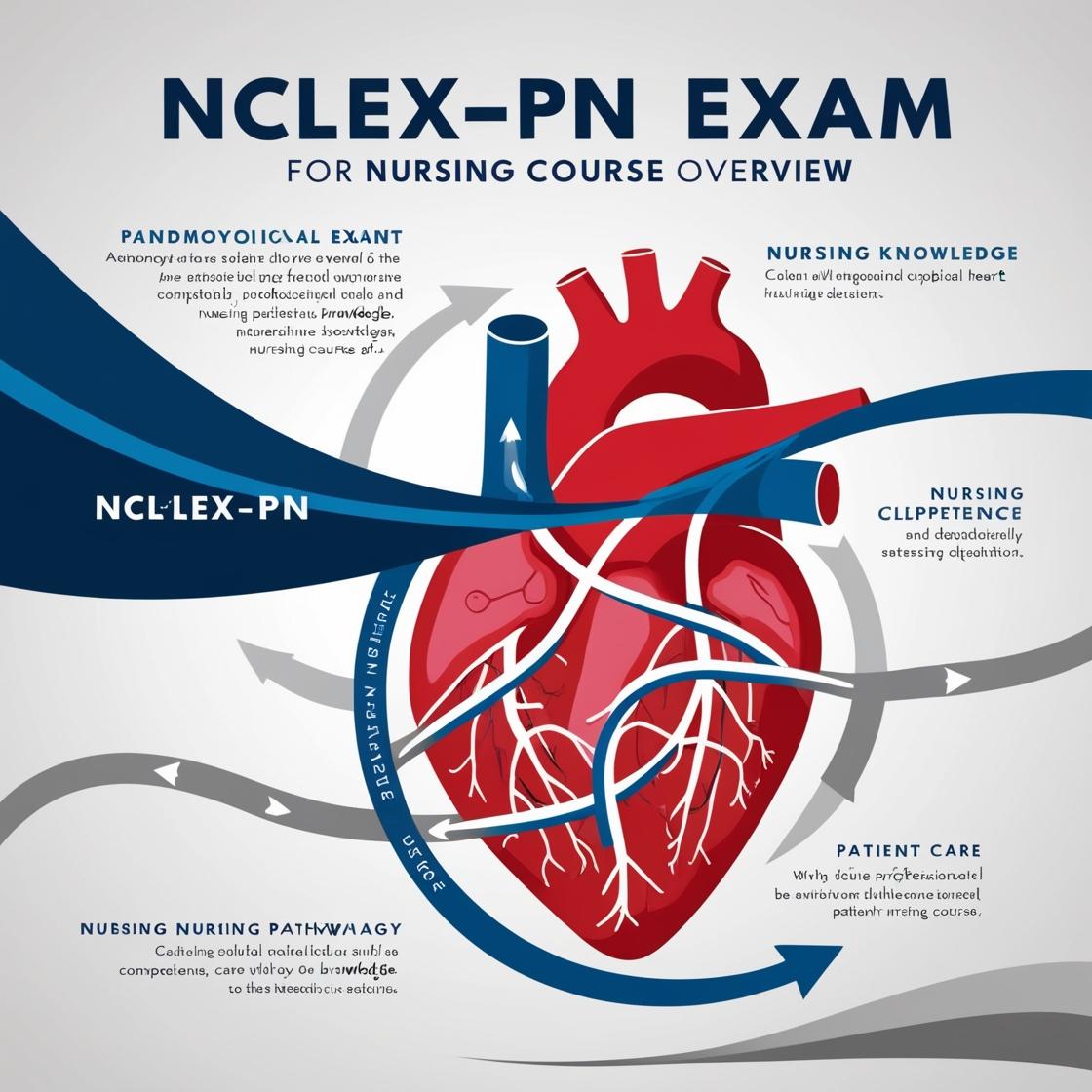NCLEX-PN
NCLEX PN 2023 Quizlet
1. The nurse is checking laboratory values on a patient who has crackling rales in the lower lobes, 2+ pitting edema, and dyspnea with minimal exertion. Which of the following laboratory values does the nurse expect to be abnormal?
- A. Potassium.
- B. B-type natriuretic peptide (BNP).
- C. C-reactive protein (CRP).
- D. Platelets.
Correct answer: B
Rationale: The client's symptoms suggest heart failure. BNP is a neurohormone released from the ventricles due to increased pressure and stretch, as seen in heart failure. A BNP level greater than 51 pg/mL is often associated with mild heart failure, with higher levels indicating more severe heart failure. Potassium levels are not typically affected by heart failure. CRP is an inflammation indicator used to predict coronary artery disease risk, not directly related to heart failure in this case. The client's symptoms do not suggest bleeding or clotting abnormalities associated with platelet count issues, making platelets an unlikely abnormal value.
2. Which of the following conditions places a client at risk for developing cirrhosis?
- A. Type I diabetes
- B. Alcoholism
- C. Leukemia
- D. Glaucoma
Correct answer: B
Rationale: Alcoholism places a client at risk for developing cirrhosis due to the liver damage caused by excessive alcohol consumption. Type I diabetes, leukemia, and glaucoma are not directly associated with cirrhosis. While diabetes can lead to other health complications, it does not directly cause cirrhosis. Leukemia is a type of blood cancer that does not affect the liver in a way that leads to cirrhosis. Glaucoma is an eye condition that has no direct link to cirrhosis.
3. A client with urinary tract calculi needs to avoid which of the following foods?
- A. lettuce
- B. cheese
- C. apples
- D. broccoli
Correct answer: B
Rationale: A client with urinary tract calculi needs to avoid foods high in calcium to prevent the formation of more stones. Cheese is high in calcium, so it should be avoided. Lettuce, apples, and broccoli are not typically associated with high calcium content and are safe options for individuals with urinary tract calculi. Therefore, the correct answer is cheese. Choices A, C, and D are not high in calcium and are safe for consumption by individuals with urinary tract calculi.
4. What do the following ABG values indicate: pH 7.38, PO2 78 mmHg, PCO2 36 mmHg, and HCO3 24 mEq/L?
- A. metabolic alkalosis
- B. homeostasis
- C. respiratory acidosis
- D. respiratory alkalosis
Correct answer: B
Rationale: The correct answer is 'homeostasis.' These ABG values fall within the normal range, indicating a state of balance and homeostasis. The pH is within the normal range (7.35-7.45), the PCO2 is normal (35-45 mmHg), and the HCO3 level is also normal (22-26 mEq/L). Choice A, 'metabolic alkalosis,' is incorrect because the pH, PCO2, and HCO3 levels are not indicative of metabolic alkalosis. Choice C, 'respiratory acidosis,' is incorrect as the pH and PCO2 values are not elevated. Choice D, 'respiratory alkalosis,' is incorrect as the pH and PCO2 levels are not decreased. Therefore, the ABG values provided do not correspond to any acid-base disturbance, confirming that the patient is in a state of homeostasis.
5. Which of the following medications is a serotonin antagonist that might be used to relieve nausea and vomiting?
- A. metoclopramide (Reglan)
- B. ondansetron (Zofran)
- C. hydroxyzine (Vistaril)
- D. prochlorperazine (Compazine)
Correct answer: B
Rationale: Zofran is a serotonin antagonist commonly used to relieve nausea and vomiting by blocking serotonin receptors. Metoclopramide (Reglan) acts on dopamine receptors, hydroxyzine (Vistaril) is an antihistamine, and prochlorperazine (Compazine) is a dopamine antagonist. While these medications can also be used for nausea and vomiting, they do not primarily function as serotonin antagonists like ondansetron.
Similar Questions

Access More Features
NCLEX PN Basic
$69.99/ 30 days
- 5,000 Questions with answers
- Comprehensive NCLEX coverage
- 30 days access @ $69.99
NCLEX PN Premium
$149.99/ 90 days
- 5,000 Questions with answers
- Comprehensive NCLEX coverage
- 30 days access @ $149.99
